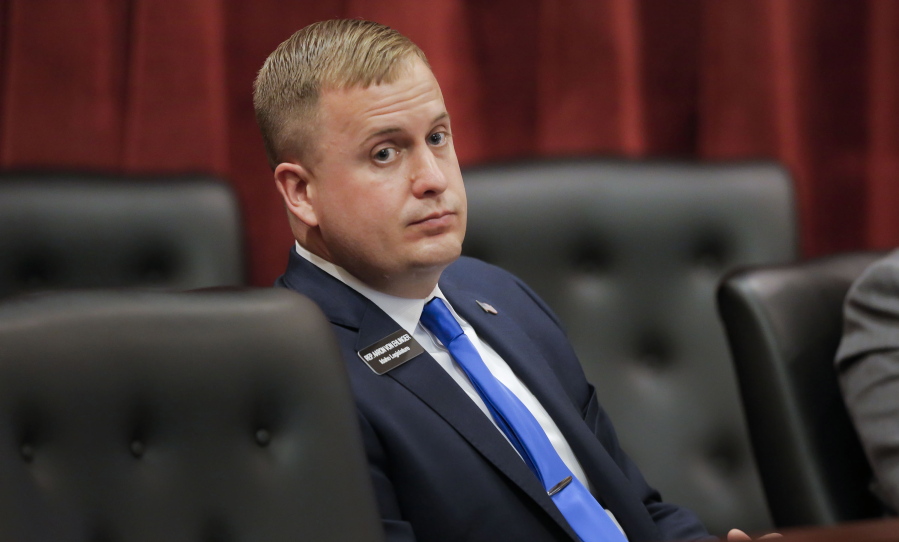An Idaho lawmaker was accused of raping an intern; a Missouri lawmaker of abusing his children. In North Dakota and Oregon, a pair of lawmakers faced claims of a pattern of sexual harassment.
All are now out of office — either resigning under pressure or getting expelled by colleagues within the past two months. Three other lawmakers accused this year remain in their jobs.
The flurry of sexual misconduct claims in state capitols comes three-and-a-half years after the #MeToo movement sparked a public reckoning for people in power accused of sexual wrongdoing and an overhaul of many state policies. The continued incidents highlight both that problems persist and that some legislatures are responding more assertively.
“These institutions don’t change overnight,” said Kelly Dittmar, research director at the Center for American Women and Politics at Rutgers University. “Part of what the #MeToo movement did was shed a spotlight on the problem, but fixing that problem that has been so deep-seeded is going to take longer.”
Since 2017, at least 109 state lawmakers in 40 states have faced public allegations of sexual misconduct or harassment, according to an Associated Press tally. Of those, 43 have resigned or been expelled and 42 have faced other repercussions such as the loss of committee chair or party leadership positions.
Idaho Rep. Aaron von Ehlinger was the most recent to resign. The 38-year-old Republican stepped down Thursday after a legislative ethics committee recommended he be suspended without pay over allegations that he raped a 19-year-old intern in his apartment after the two had dinner at a Boise restaurant.
Von Ehlinger denied wrongdoing, insisted the sexual contact was consensual and wrote in his resignation letter that he was quitting because he could not effectively represent his constituents.
The decision came the day after the committee heard testimony, including from the young woman who brought the allegations. She was shielded from public view by a black screen and used the name Jane Doe during the proceedings. But a TV reporter attempted to film her as she left, and at least one lawmaker revealed her identify on social media. The Associated Press generally does not identify people who say they have been sexually assaulted.
Republican Senate President Pro Tem Chuck Winder on Friday praised the woman for “the courage to come forward.”
“Anyone and everyone who comes here and works here, including yourselves, should feel safe here. It needs to be a respectful place to work,” Winder told colleagues.
In January 2020, an AP review found that states had enacted more than 75 laws and resolutions targeting sexual harassment, abuse and assault within government or the private sector over the previous two years. The review also found that nearly all legislative chambers required sexual harassment training for members, up significantly from about one-third of the chambers during a 2018 AP review.



